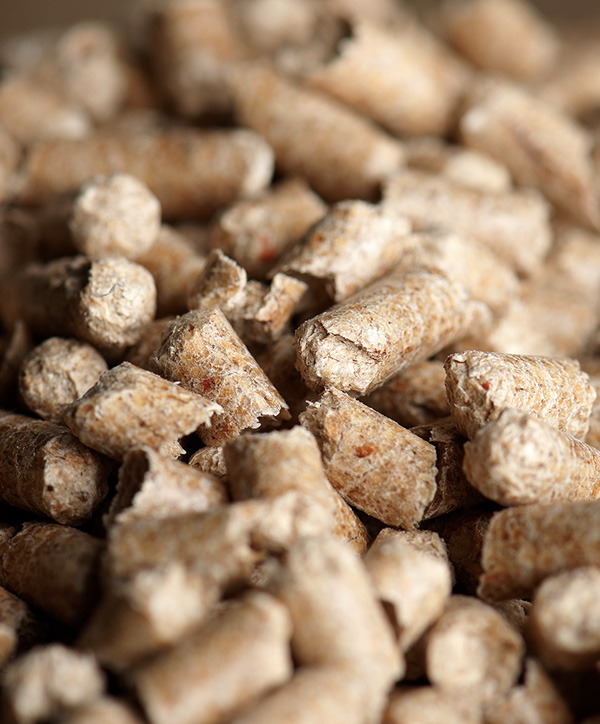Biomass
What is a biomass boiler?
Biomass boilers are also known as wood fuelled heating systems. Biomass boilers are similar to the conventional home heating boilers most of us will have installed in our homes. However, a biomass boiler differs from conventional boilers which use fossil fuels as it is a renewable energy source, which produces heat for your home through the combustion of sustainably sourced wood pellets, plants, and other organic material.

How does a biomass boiler work?
A biomass boiler works in a similar way to conventional boilers, as it combusts fuel to produce heat which is then used to power the central heating and hot water system of a home. A stove burns logs or pellets to heat a single room – and may be fitted with a back boiler to provide water heating as well.
What are the benefits of biomass heating?
It is considered a much cheaper alternative to fossil fuels as although the price of wood varies considerably, it is often still a cheaper fuel source. In addition, a heating system which uses wood instead of fossil fuels is a low carbon option as the amount of carbon which is released during combustion is equal to the amount absorbed over the period the tree was growing.
What do I need to consider before choosing a wood-fuelled heating system?
The first thing to consider is if you would like to install a biomass boiler to replace your standard gas or oil boiler or if you would prefer to install a stove.
The next thing to consider is your fuel source this is typically one of the following: chips, pellets or logs. Pellets are the preferred fuel source for many biomass boilers as pellet boilers can be automated in a similar way to conventional boilers and operate using automatic fuel feeders, which refill them at regular intervals. Whereas log burning stoves and boilers will need to be manually filled.
The next thing to consider is if you have space. Wood boilers are typically larger than conventional boilers and have the extra requirement of fuel storage. You should consider if you have adequate space for the boiler and fuel storage which is accessible for deliveries of fuel when required.
Due to the nature of wood burning boilers and stoves it is a requirement that a flue is installed which meets the requirements for food-burning appliances. This should be discussed with an installer to ensure there is a suitable location for the installation of a flue.
It is important to check with your local planning authority if you require planning permission this may not be a requirement but it is in your best interest to ensure this is checked.
Lastly, you should always consider the costs associated with the installation of a wood burning boiler or stove. The cost of installation will be entirely dependent on the heating demand of your home and should be discussed with an installer before considering installation.
Domestic biomass installations are not supported by the SEAI Home Energy Grants Programme.
